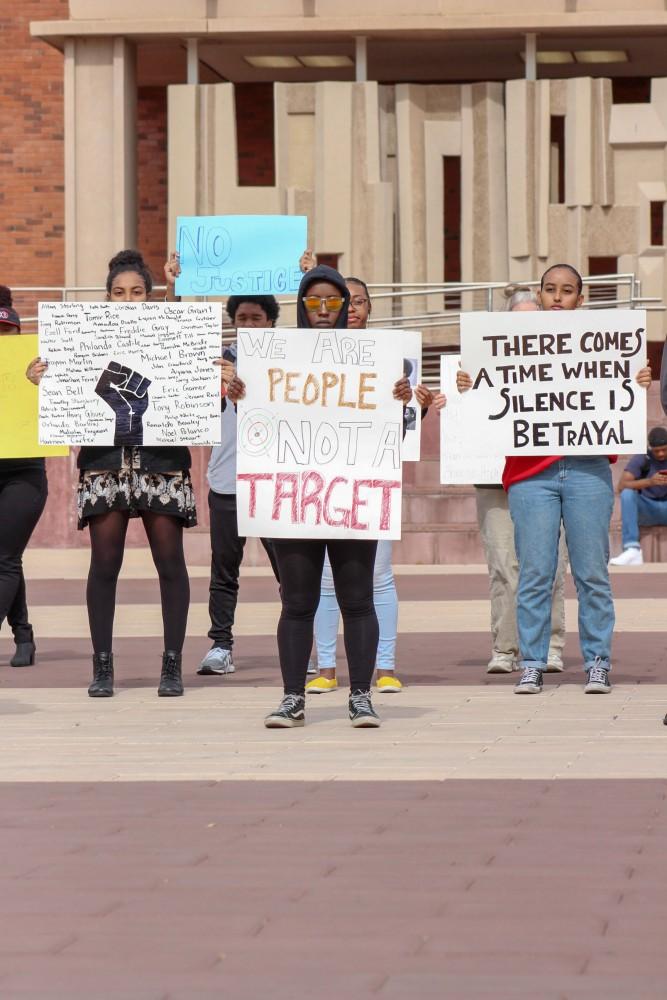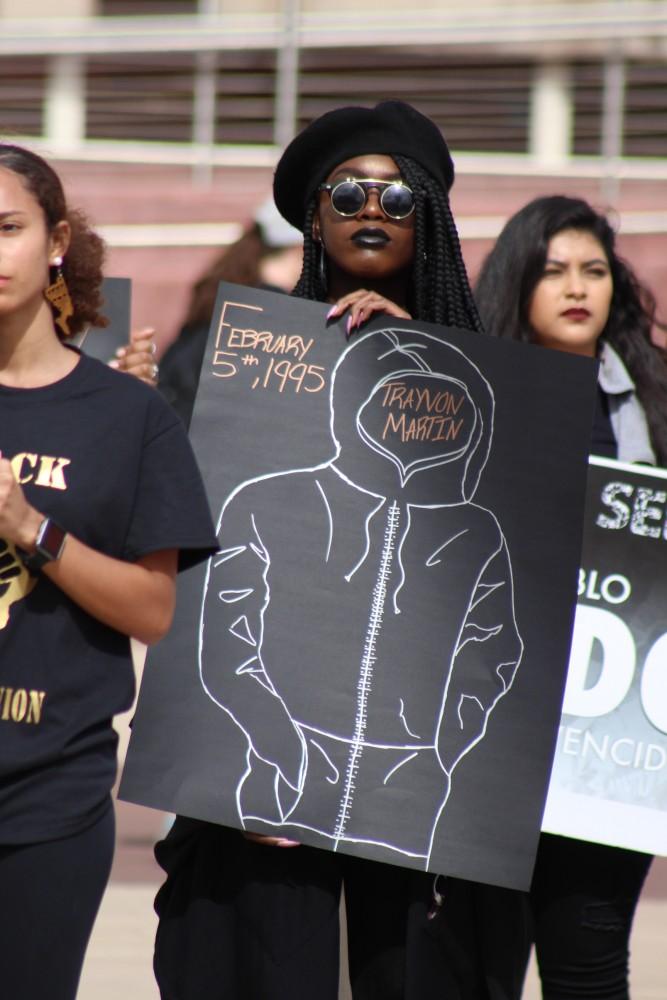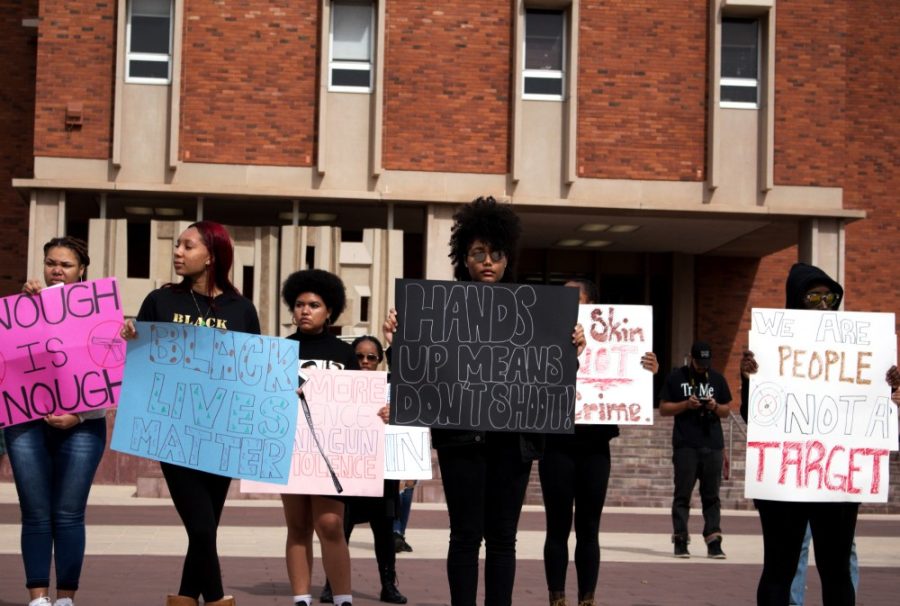The University of Arizona’s Black Student Union held a protest in front of the Administration Building on Tuesday morning in order to protest injustice and violence against African Americans.
The majority of the protest was silent as protesters stood with signs that said phrases such as, “hands up means don’t shoot,” “blackness is a beauty not a bounty” and “dark skin is not a crime.”
RELATED: Exploring the long history of racial politics on college campuses nationwide
According to Kwadjo Walker, president of BSU and a senior studying physiology and molecular and cellular biology, having a silent protest, rather than a traditional one, was very significant.
“There is power in silence…” Walker said. “People have really lost their lives. They can no longer speak for themselves … Even though we are not being audible, I think this is another way to potentially make sure they are heard and not forgotten.”

The members of the BSU protested silently for about an hour and then broke the silence in the final minutes of the protest by linking arms in a circle and chanting four lines together, “It is our duty to fight for our freedom. It is our duty to win. We must love each other and protect each other. We have nothing to lose but our chains.”
They then walked back to the Dr. Martin Luther King Jr. Center, where the march and protest began.
The date the protest was held was not picked randomly, according to Walker. It was specifically held on this day, as it has been for several years now, because it was Trayvon Martin’s birthday.
Trayvon Martin was an unarmed, seventeen-year old African-American boy who was shot and killed by neighborhood watchman George Zimmerman in 2012. Martin would have turned 24 in 2019.

Walker believed that it was incredibly important to continue the tradition of having the protest on Martin’s birthday, in order to honor him and to recognize how important the case has been nationally.
According to Walker, it was a “high profile case and an intersection of so many different issues and topics.”
According to Walker, many issues intersected to make Martin’s death particularly high profile.
“This is something where you really saw a lot that there was such a division,” Walker said. “People were saying ‘oh you know he shouldn’t have been doing this,’ in a way trying to justify the death of essentially a child who was unarmed.”
According to Walker, it was Martin’s death that really marked the beginning of the “Black Lives Matter” movement and the to its rise into civil discourse, even before it became incredibly popular in 2014 after the death of Michael Brown.
“That huge case that went across this nation and the creation of the phrase, ‘Black Lives Matter’ are the main reasons why we will continue to have it in [Martin’s] honor,” Walker said.
RELATED: For members of the BLACK community, displacement anything but easy
Walker felt that the BSU’s greatest hopes for the protest came true, as many people saw what they were doing and wanted to become involved with social justice and BSU. He also believed that they succeeded in starting conversations.
“It provides an opportunity for us to say ‘this is why we are doing this.’ We are doing this in honor of not only Trayvon Martin but … you know this is not a unique instance. Unfortunately, you see a lot of unarmed black people being killed, so we can have that conversation and be like ‘this is a real problem,’” Walker said. “I know and feel that, it’s a really real feeling, that if I die next week, say shot from a police officer, will there be justice? I don’t know whether or not there would be a consequence and that’s a problem.”
Follow the Daily Wildcat on Twitter









